Space Settlement
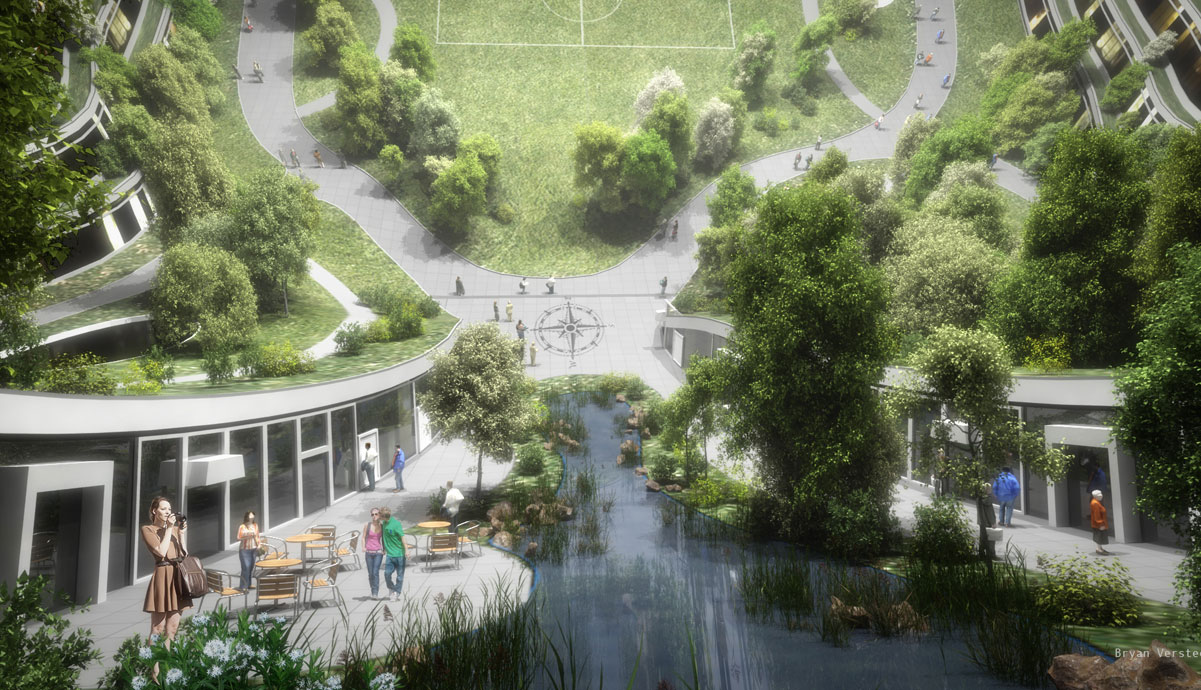
The Space Settlement Track will feature an overview presentation and a panel discussion on where the first space settlements will, or should, be. Mars? The Moon? In LEO? Co-orbiting an asteroid?
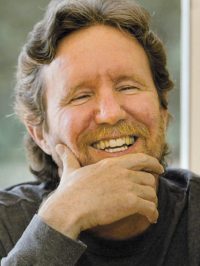
Track Co-Chair:
Al Globus
Director
Alliance for Space Development
Al Globus worked at NASA Ames on space settlement, asteroid mining, Hubble, space stations, X37, Earth observation, TDRSS, cubesats, lunar teleoperation, spaceflight effects on bone, molecular nanotechnology, and space solar power publishing dozens of papers on these and other topics. He founded and has run the annual Space Settlement Contest for 7-12 grade students for over 25 years. Most recently, he found a way to build O’Neill-style space settlements with two or more orders of magnitude less mass and place them close to Earth, making launch from Earth practical.
Track Co-Chair:
Al Globus
Director, Alliance for Space Development
Al Globus worked at NASA Ames on space settlement, asteroid mining, Hubble, space stations, X37, Earth observation, TDRSS, cubesats, lunar teleoperation, spaceflight effects on bone, molecular nanotechnology, and space solar power publishing dozens of papers on these and other topics. He founded and has run the annual Space Settlement Contest for 7-12 grade students for over 25 years. Most recently, he found a way to build O’Neill-style space settlements with two or more orders of magnitude less mass and place them close to Earth, making launch from Earth practical.
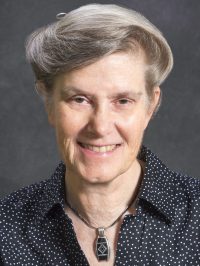
Track Co-Chair:
Anita Gale
Co-Founder
Space Settlement Design Competition
Anita Gale co-founded events in the 1980s that became the International Space Settlement Design Competition. Her research for the Competition led to writing and presenting papers on triggering events for space settlement, space infrastructure, and economic justifications for space settlements. Her 40-year career with The Boeing Company included payload and cargo integration for reusable launch vehicles, proposals for future space vehicles, roadmapping space infrastructure development, and multiple R&D projects to improve space vehicle operations. Anita is an elected NSS Board Member, and currently serves on the NSS Executive Committee as Secretary.
Track Co-Chair:
Anita Gale
Co-Founder, Space Settlement Design Competition
Anita Gale co-founded events in the 1980s that became the International Space Settlement Design Competition. Her research for the Competition led to writing and presenting papers on triggering events for space settlement, space infrastructure, and economic justifications for space settlements. Her 40-year career with The Boeing Company included payload and cargo integration for reusable launch vehicles, proposals for future space vehicles, roadmapping space infrastructure development, and multiple R&D projects to improve space vehicle operations. Anita is an elected NSS Board Member, and currently serves on the NSS Executive Committee as Secretary.
Speakers
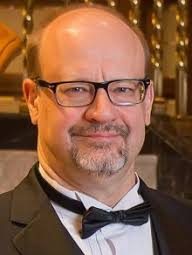
Moderator:
Dale Skran
National Space Society
Dale Skran is the Chair of the NSS Executive Committee, and a member of the NSS Board of Directors. He also is a member of the NSS Policy Committee and the Co-Chair of the NSS Bylaws Committee, as well as the Team Leader for the NSS new membership database project. Previous NSS roles have included Executive Vice President and Chair of the Policy Committee, as well as NSS IS Director. Outside of NSS, Dale represents NSS on the Alliance for Space Development Board of Directors. Dale has been deeply involved in March Storm and the August Home District Blitz since 2015. Additionally, Dale is a frequent contributor to Ad Astra and the NSS Blog.
After 17 years with Bell Labs (AT&T, Lucent Technologies), Dale Skran worked in several companies including Ascend Communications (VP of Enterprise Engineering), Sonus Networks (Director of Engineering), and CMWare (Founder, CEO, COO, and VP of Engineering). He was also a negotiator/ manager (Rapporteur) at the UN (International Telecommunication Union) where he led the development of international Internet standards for video conferencing and voice services (VoIP).
Presentation: The Space Development and Settlement Act
Moderator:
Dale Skran
National Space Society
Dale Skran is the Chair of the NSS Executive Committee, and a member of the NSS Board of Directors. He also is a member of the NSS Policy Committee and the Co-Chair of the NSS Bylaws Committee, as well as the Team Leader for the NSS new membership database project. Previous NSS roles have included Executive Vice President and Chair of the Policy Committee, as well as NSS IS Director. Outside of NSS, Dale represents NSS on the Alliance for Space Development Board of Directors. Dale has been deeply involved in March Storm and the August Home District Blitz since 2015. Additionally, Dale is a frequent contributor to Ad Astra and the NSS Blog.
After 17 years with Bell Labs (AT&T, Lucent Technologies), Dale Skran worked in several companies including Ascend Communications (VP of Enterprise Engineering), Sonus Networks (Director of Engineering), and CMWare (Founder, CEO, COO, and VP of Engineering). He was also a negotiator/ manager (Rapporteur) at the UN (International Telecommunication Union) where he led the development of international Internet standards for video conferencing and voice services (VoIP).
Presentation: The Space Development and Settlement Act

Barbara Belvisi
CEO
Interstellar Lab
Barbara is an entrepreneur and investor, passionate about nature, science and space. She is currently founder and CEO at Interstellar Lab whose mission is to design and build bioregenerative habitats for humans to live sustainably on any planet.
She started her career as Investment Manager raising over $80M and participated in 40 deals. At 28, she left to focus on her passion: tech and science. She helped launching The Family, a Paris-based incubator and Hello Tomorrow, an event fostering scientific innovation. Then she founded her own asset management firm Elephants & Ventures in 2013 which gave birth in 2015 to Hardware Club. A hybrid fund with offices in SF, Paris and Tokyo with focus on robotics, hardware and IoT. It incubated 400 startups worldwide, total 150 corporate partners and a $50M seed-stage investment. Youngest women founder of a venture capital fund in Europe, she was considered by Forbes as « the future of VC » in Europe, is among the Top-100 Forbes List Women to follow in Europe and the Top-10 Women to watch in Tech In France in 2018.
Presentation: From Space to Earth: Building Sustainable Worlds
How can Earth inspire us in designing and building bioregenerative closed-loop habitats for space settlement? How can space settlement will help us finding sustainable habitat solutions on Earth?
Barbara Belvisi
CEO, Interstellar Lab
Barbara is an entrepreneur and investor, passionate about nature, science and space. She is currently founder and CEO at Interstellar Lab whose mission is to design and build bioregenerative habitats for humans to live sustainably on any planet. She started her career as Investment Manager raising over $80M and participated in 40 deals. At 28, she left to focus on her passion: tech and science. She helped launching The Family, a Paris-based incubator and Hello Tomorrow, an event fostering scientific innovation. Then she founded her own asset management firm Elephants & Ventures in 2013 which gave birth in 2015 to Hardware Club. A hybrid fund with offices in SF, Paris and Tokyo with focus on robotics, hardware and IoT. It incubated 400 startups worldwide, total 150 corporate partners and a $50M seed-stage investment. Youngest women founder of a venture capital fund in Europe, she was considered by Forbes as « the future of VC » in Europe, is among the Top-100 Forbes List Women to follow in Europe and the Top-10 Women to watch in Tech In France in 2018.
Presentation: From Space to Earth: Building Sustainable Worlds
How can Earth inspire us in designing and building bioregenerative closed-loop habitats for space settlement? How can space settlement will help us finding sustainable habitat solutions on Earth?

Anita Gale
Co-Founder
Space Settlement Design Competition
Anita Gale co-founded events in the 1980s that became the International Space Settlement Design Competition. Her research for the Competition led to writing and presenting papers on triggering events for space settlement, space infrastructure, and economic justifications for space settlements. Her 40-year career with The Boeing Company included payload and cargo integration for reusable launch vehicles, proposals for future space vehicles, roadmapping space infrastructure development, and multiple R&D projects to improve space vehicle operations. Anita is an elected NSS Board Member, and currently serves on the NSS Executive Committee as Secretary.
Presentation: Getting Started: Large Space Settlement Development
Many of us remember that people were supposed to be living in space decades before now. It didn’t happen because the supporting infrastructure wasn’t in place to enable it to happen. Insights from NSS Space Settlement Summits–with engineers and scientists working to make space settlement happen–show that factors are starting to fall into place that will trigger expansion of human economics and habitation into space, perhaps within a decade.
Anita Gale
Co-Founder, Space Settlement Design Competition
Anita Gale co-founded events in the 1980s that became the International Space Settlement Design Competition. Her research for the Competition led to writing and presenting papers on triggering events for space settlement, space infrastructure, and economic justifications for space settlements. Her 40-year career with The Boeing Company included payload and cargo integration for reusable launch vehicles, proposals for future space vehicles, roadmapping space infrastructure development, and multiple R&D projects to improve space vehicle operations. Anita is an elected NSS Board Member, and currently serves on the NSS Executive Committee as Secretary.
Presentation: Getting Started: Large Space Settlement Development
Many of us remember that people were supposed to be living in space decades before now. It didn’t happen because the supporting infrastructure wasn’t in place to enable it to happen. Insights from NSS Space Settlement Summits–with engineers and scientists working to make space settlement happen–show that factors are starting to fall into place that will trigger expansion of human economics and habitation into space, perhaps within a decade.
Panel:
Where First? A Discussion of Our First Space Home
Panelists advocate for and will be encouraged discuss establishing the first extraterrestrial human settlement either on the Moon, on Mars, or in free space (in LEO, cislunar space, co-orbiting with an asteroid, or near a moon). Audience participation is encouraged, including voting on their own preferences both before and after the debate.



Moderator:
Anita Gale
Co-Founder
Space Settlement Design Competition
Anita Gale co-founded events in the 1980s that became the International Space Settlement Design Competition. Her research for the Competition led to writing and presenting papers on triggering events for space settlement, space infrastructure, and economic justifications for space settlements. Her 40-year career with The Boeing Company included payload and cargo integration for reusable launch vehicles, proposals for future space vehicles, roadmapping space infrastructure development, and multiple R&D projects to improve space vehicle operations. Anita is an elected NSS Board Member, and currently serves on the NSS Executive Committee as Secretary.
Moderator:
Anita Gale
Co-Founder, Space Settlement Design Competition
Anita Gale co-founded events in the 1980s that became the International Space Settlement Design Competition. Her research for the Competition led to writing and presenting papers on triggering events for space settlement, space infrastructure, and economic justifications for space settlements. Her 40-year career with The Boeing Company included payload and cargo integration for reusable launch vehicles, proposals for future space vehicles, roadmapping space infrastructure development, and multiple R&D projects to improve space vehicle operations. Anita is an elected NSS Board Member, and currently serves on the NSS Executive Committee as Secretary.


Panelist:
Al Globus
Director, Alliance for Space Development
Al Globus worked at NASA Ames on space settlement, asteroid mining, Hubble, space stations, X37, Earth observation, TDRSS, cubesats, lunar teleoperation, spaceflight effects on bone, molecular nanotechnology, and space solar power publishing dozens of papers on these and other topics. He founded and has run the annual Space Settlement Contest for 7-12 grade students for over 25 years. Most recently, he found a way to build O’Neill-style space settlements with two or more orders of magnitude less mass and place them close to Earth, making launch from Earth practical.
Panelist:
Al Globus
Director, Alliance for Space Development
Al Globus worked at NASA Ames on space settlement, asteroid mining, Hubble, space stations, X37, Earth observation, TDRSS, cubesats, lunar teleoperation, spaceflight effects on bone, molecular nanotechnology, and space solar power publishing dozens of papers on these and other topics. He founded and has run the annual Space Settlement Contest for 7-12 grade students for over 25 years. Most recently, he found a way to build O’Neill-style space settlements with two or more orders of magnitude less mass and place them close to Earth, making launch from Earth practical.
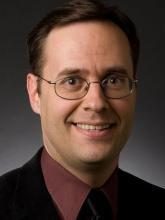

Panelist:
Dr. Doug Plata
President & Founder, The Space Development Network
Dr. Plata is a physician and public health specialist in Loma Linda, CA. His undergraduate degree was in biophysics and he went on to complete his MD and MPH with specialty training in Family and Preventive Medicine. His primary interest in space is the development of a cost-effective transportation to the Moon based upon lunar polar ice for propellant and the establishment of humanity’s first permanent foothold off Earth. A description of this Plan for Sustainable Space Development can be found at DevelopSpace.info. He has founded a new type of free-to-join space advocacy organization called the Space Development Network which can also be found at DevelopSpace.info.
Panelist:
Dr. Doug Plata
President & Founder, The Space Development Network
Dr. Plata is a physician and public health specialist in Loma Linda, CA. His undergraduate degree was in biophysics and he went on to complete his MD and MPH with specialty training in Family and Preventive Medicine. His primary interest in space is the development of a cost-effective transportation to the Moon based upon lunar polar ice for propellant and the establishment of humanity’s first permanent foothold off Earth. A description of this Plan for Sustainable Space Development can be found at DevelopSpace.info. He has founded a new type of free-to-join space advocacy organization called the Space Development Network which can also be found at DevelopSpace.info.
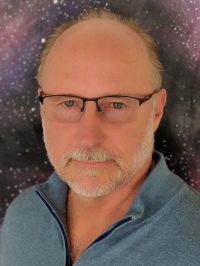

Panelist:
Joel Sercel
President and Founder
Trans Astronautica Corporation
Joel Sercel is President and Founder of Trans Astronautica Corporation, a Los Angeles based aerospace R&D enterprise dedicated to developing the technology and systems needed to find and use space resources for the economic benefit of humanity. He is also the CTO of the Silicon Valley venture funded company Momentus. Momentus is an in-space logistics company developing satellite shuttles that carry spacecraft to destination orbits from where launch vehicles leave them off using water plasma rocket technology. Sercel is a serial entrepreneur and proven innovator who has founded three successful companies and is a four time NASA NIAC Fellow. He has served the National Academy of Sciences, advised the JASONs, lectured for 12 years at Caltech and given over 200 paid invited speeches and courses to many agencies of the US government, NASA private industries, and universities in North and South America, Europe and Asia and is the author of 16 patents in aerospace technology.
Panelist:
Joel Sercel
President and Founder, Trans Astronautica Corporation
Joel Sercel is President and Founder of Trans Astronautica Corporation, a Los Angeles based aerospace R&D enterprise dedicated to developing the technology and systems needed to find and use space resources for the economic benefit of humanity. He is also the CTO of the Silicon Valley venture funded company Momentus. Momentus is an in-space logistics company developing satellite shuttles that carry spacecraft to destination orbits from where launch vehicles leave them off using water plasma rocket technology. Sercel is a serial entrepreneur and proven innovator who has founded three successful companies and is a four time NASA NIAC Fellow. He has served the National Academy of Sciences, advised the JASONs, lectured for 12 years at Caltech and given over 200 paid invited speeches and courses to many agencies of the US government, NASA private industries, and universities in North and South America, Europe and Asia and is the author of 16 patents in aerospace technology.
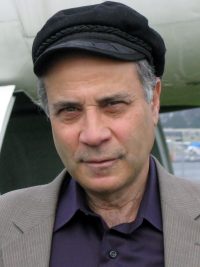

Panelist:
Robert Zubrin
President
Pioneer Astronautics
Robert Zubrin is President of Pioneer Astronautics, an aerospace R&D company located in Lakewood, Colorado. He is also the founder and President of the Mars Society. Formerly a Staff Engineer at Lockheed Martin Astronautics in Denver, he holds a Masters degree in Aeronautics and Astronautics and a Ph.D. in Nuclear Engineering from the University of Washington. Zubrin is the author of 9 books, 15 patents, and over 200 published technical and non-technical papers in the field of space exploration and technology.
Panelist:
Robert Zubrin
President, Pioneer Astronautics
Robert Zubrin is President of Pioneer Astronautics, an aerospace R&D company located in Lakewood, Colorado. He is also the founder and President of the Mars Society. Formerly a Staff Engineer at Lockheed Martin Astronautics in Denver, he holds a Masters degree in Aeronautics and Astronautics and a Ph.D. in Nuclear Engineering from the University of Washington. Zubrin is the author of 9 books, 15 patents, and over 200 published technical and non-technical papers in the field of space exploration and technology.
